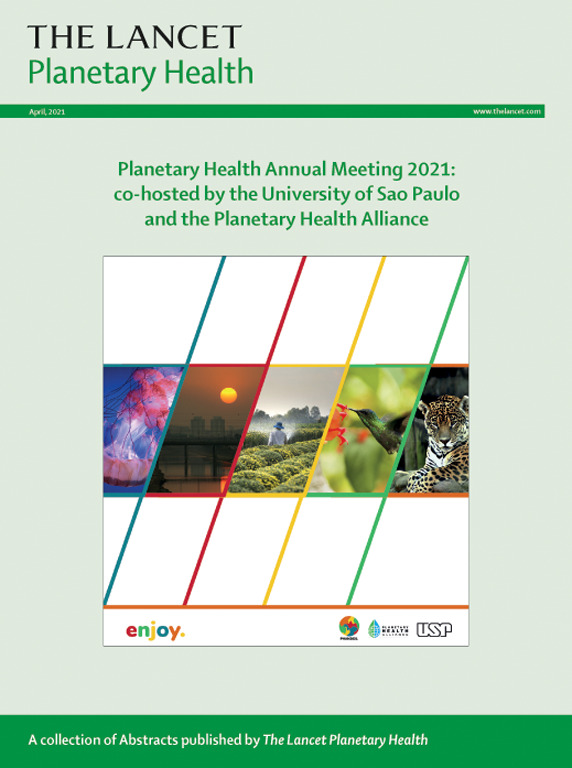Climate change and child wellbeing: a systematic evidence and gap map on impacts, mitigation, and adaptation
IF 21.6
1区 医学
Q1 ENVIRONMENTAL SCIENCES
引用次数: 0
Abstract
We developed a systematic evidence and gap map (2014–24) to assess how climate change impacts, mitigation, and adaptation affect the wellbeing of children aged 0–18 years globally, and discussed findings with the Children in All Policies 2030 Youth Advisory Board. Health was the most researched child wellbeing domain (84%; 948 of 1127 studies), followed by education (15%; n=171), and food security and nutrition (14%; n=160). Research on children's agency and resilience, displacement, socioeconomic distress, and safety received less attention. Health research gaps included limited studies on vector-borne diseases, children's mental health beyond post-traumatic stress disorder, and health outcomes for children aged 5–18 years. Mitigation and adaptation research focused largely on educational (45%; 114 of 252 studies) and behavioural changes (31%; n=79), with gaps in the evaluation of financing, infrastructure, technology, clean energy, and policy actions. Youth advisory board members emphasised the importance of schools, social media, and intergenerational dialogue in driving climate action while protecting children's wellbeing.
气候变化与儿童福祉:关于影响、缓解和适应的系统证据和差距图
我们开发了一个系统的证据和差距图(2014-24),以评估气候变化的影响、缓解和适应如何影响全球0-18岁儿童的福祉,并与2030年所有儿童政策青年咨询委员会讨论了研究结果。健康是研究最多的儿童福利领域(84%;1127项研究中有948项),其次是教育(15%;N =171),以及粮食安全和营养(14%;n = 160)。关于儿童的代理和复原力、流离失所、社会经济困境和安全的研究较少受到关注。健康研究方面的差距包括对媒介传播疾病、创伤后应激障碍之外的儿童心理健康以及5-18岁儿童健康结果的有限研究。缓解和适应研究主要集中在教育方面(45%;252项研究中的114项)和行为改变(31%;N =79),在融资、基础设施、技术、清洁能源和政策行动的评估方面存在差距。青年咨询委员会成员强调了学校、社交媒体和代际对话在推动气候行动同时保护儿童福祉方面的重要性。
本文章由计算机程序翻译,如有差异,请以英文原文为准。
求助全文
约1分钟内获得全文
求助全文
来源期刊

Lancet Planetary Health
Multiple-
CiteScore
28.40
自引率
2.30%
发文量
272
审稿时长
8 weeks
期刊介绍:
The Lancet Planetary Health is a gold Open Access journal dedicated to investigating and addressing the multifaceted determinants of healthy human civilizations and their impact on natural systems. Positioned as a key player in sustainable development, the journal covers a broad, interdisciplinary scope, encompassing areas such as poverty, nutrition, gender equity, water and sanitation, energy, economic growth, industrialization, inequality, urbanization, human consumption and production, climate change, ocean health, land use, peace, and justice.
With a commitment to publishing high-quality research, comment, and correspondence, it aims to be the leading journal for sustainable development in the face of unprecedented dangers and threats.
 求助内容:
求助内容: 应助结果提醒方式:
应助结果提醒方式:


